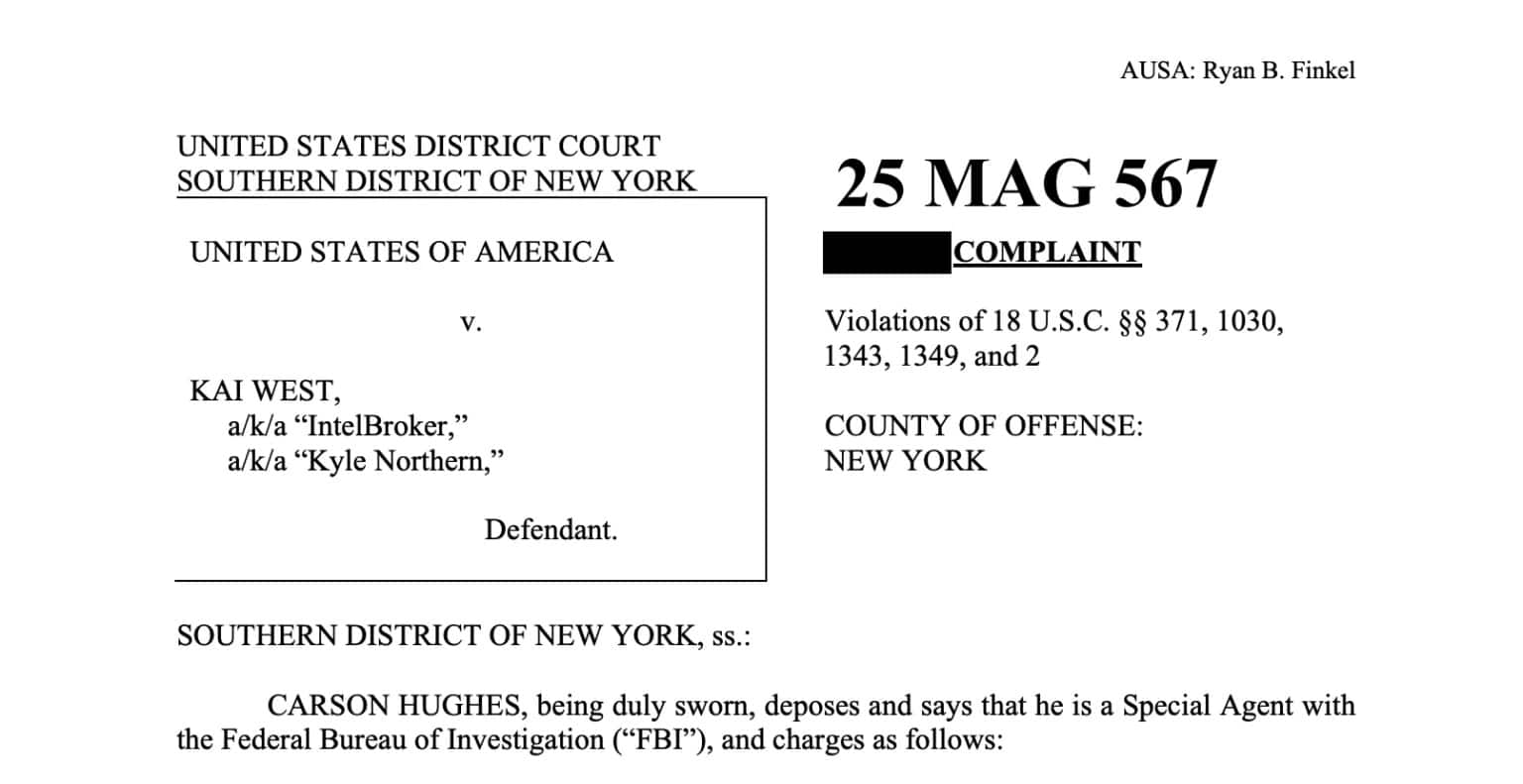The FBI arrested a British cybercriminal after he accepted a payment in Bitcoin, betraying years of anonymity obtained through Monero. This case highlights the effectiveness of Bitcoin’s traceability, which is often underestimated, in a context where crypto regulations are becoming increasingly controversial.
An undercover operation brings down an experienced cybercriminal thanks to Bitcoin
Kai West, a 20-year-old British student specializing in cybersecurity, was charged this week in the United States. Under the alias “IntelBroker,” he allegedly sold and/or disclosed sensitive data from US companies, healthcare systems, and government services between 2023 and 2025. The authorities estimate the damage caused by his activities at $25 million.

Kai West used only the cryptocurrency Monero (XMR) to make sales on dark web forums. Monero is known for its ability to hide transaction information, particularly through “ring signatures.”
Using Monero allowed him to operate in the shadows, safe from traditional tracking tools that are more effective on blockchains such as Bitcoin.
But everything changed in January 2023, when an FBI agent, posing as an interested buyer, managed to offer him a payment of $250 in Bitcoin. IntelBroker, which until then had refused any transactions outside of Monero, eventually gave in. This single transaction opened a breach. West allegedly made the mistake of sharing an address that had already been used and was linked to another wallet, which was itself connected to an account on the Ramp platform, a crypto purchasing service that requires identity verification.
This account was linked to Kai West’s driver’s license. Investigators also reportedly found a Coinbase account opened under the alias “Kyle Northern” with the same ID document. The investigation also cross-referenced his digital activities: IP address, YouTube history, email addresses, and passwords matched those used by IntelBroker on the forums.
Despite his efforts to pose as a Russian-speaking hacker, West was in fact living in the United Kingdom, where he was pursuing his studies.
The IntelBroker case highlights the power of Bitcoin’s traceability. Contrary to popular belief, the Bitcoin blockchain is public, and any transaction can be analyzed. It was precisely these traces that enabled the FBI to identify the hacker after a single payment in BTC.
But this transparency is often ignored and dismissed by many politicians to justify ever stricter regulations. However, according to Chainalysis, only 0.14% of crypto transactions were illegal in 2024. By comparison, according to the UN, 3 to 5% of global GDP is involved in illegal activities each year with fiat currencies.
The surveillance measures imposed on cryptocurrency exchange platforms, such as KYC, expose users to major risks: data leaks, identity theft, and even physical violence.
In France, eight kidnappings targeted figures in the crypto sector in 2025, whose data had allegedly been compromised. Under the pretext of fighting crime, a transparent and verifiable monetary alternative is being weakened, to the detriment of individual sovereignty. This paradox raises an essential question: is Bitcoin a tool for freedom… or a victim of the repression put in place by our governments?
